Hardening time of concrete: structure, factors of positive
Concrete is used everywhere, as the most durable and at the same time affordable building material. But at the moment of pouring, it has a mushy state, which does not make up the impression of a solid foundation or wall.
How much time must pass to be able to proceed to the subsequent installation work, without fear for the reliability of the building? In this article we will try to find the answer to this question.

Freeze period
In order to best understand the whole process and estimate its duration, let us begin with the composition of the concrete and the processes occurring in it.
Structure
All ingenious is simple.
So in the case of concreting, absolutely available ingredients are taken to knead the necessary solution:
- Sand. Career sandstone is an excellent tool for reducing the porosity of the finished material.
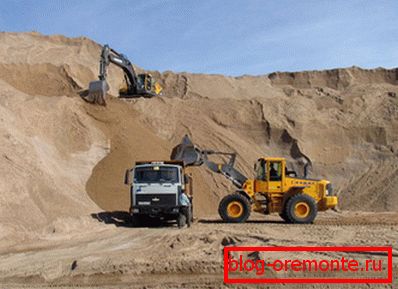
- Gravel. Determines the level of strength of the future concrete structure, which may be damaged only by diamond-coated nozzles.
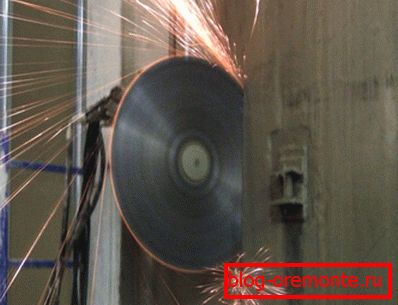
- Water. It acts as a dispersion medium for combining all the elements used and, coming into contact with cement, allows it to harden.
Tip: it is recommended that after pouring the solution, cover it with plastic wrap and pour water until it solidifies. This will significantly improve its strength characteristics.
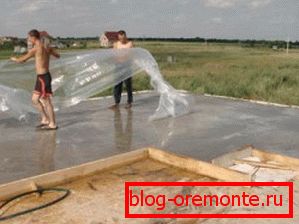
- Cement. It is a binder, which, as we noted above, in combination with water turns into a durable stone and combines all the other components. The hardening time of the concrete depends on it the most.
Tip: it is recommended to use only the highest quality cement brands M400 and M500. Although the price of such mixtures is higher, only they will be able to ensure the proper setting of the mortar.
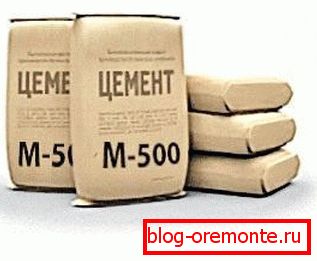
Positive impact factor
So, we understand the structure of concrete and the processes occurring in it. If the batch is done correctly, then what can affect the time it sets? At the beginning of the article is a graph of the dependence of the maturation of the solution on the temperature. And below is a similar table, only taking into account average daily indicators:
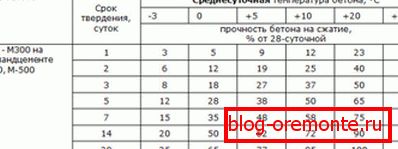
As you can see, the level of heat is the only, in fact, factor that influences how long concrete hardens. The more degrees above zero, the faster the composition will pick up its strength, but due to the fact that the temperature changes during the day and it is impossible to achieve a single permanent indicator, the ideal option would be a period of 28 days.
The first setting occurs in the first seven days, which is 70 percent of the total concrete strength index. But the maximum result is gradually recruited for the next three weeks. And then, as we have noted earlier, only diamond nozzles will be able to cause damage to the finished product.
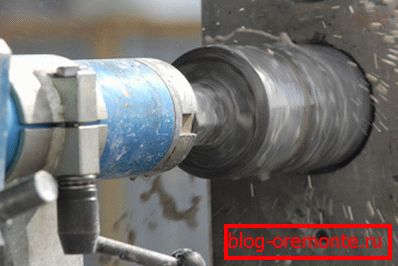
Negative impact factor
It's all the same temperature, only negative. The instruction prohibits concreting in winter, when frost is possible. This is due to the fact that water freezes and does not react with the cement, excluding the process of petrification. And even more than that, crystallizing, it expands and destroys the structure of concrete from the inside.
As a result, even if the surface of the structure seems to be strong enough, after thawing the liquid, you will get a loose substance that is not good for anything. Thus, either it is worth laying concrete in the summer, or with its own hands to take care of its heating at sub-zero temperatures.
To do this, you can use the following methods:
- Add antifreeze additive to the solution, which will not allow water to freeze in winter.
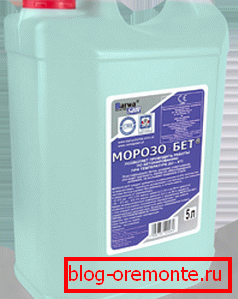
- Equip the heating of the concrete with an electrical wire that helps to maintain an acceptable temperature throughout the solution.
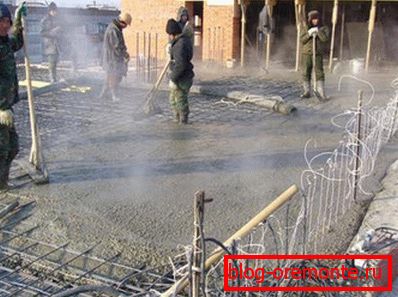
Acceleration
It is also worth mentioning special modifiers that, when released into concrete during the kneading process, can significantly improve its properties, including the abbreviation of the pour point term. Some additives can reduce it to a week, which will allow you to remove the formwork in the first days, and after the specified period begin the construction work.
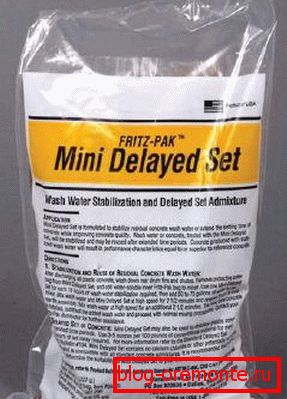
Conclusion
Four weeks is enough for concrete to fully mature, but partial already occurs in 5-7 days. The main parameter that can reduce or extend this time is the ambient temperature.
High allows you to grab faster, low slows down the process and can even completely spoil the batch. But on the other hand, the inconstancy of the natural weather can always be compensated by such artificial methods as special additives and electrical heating.
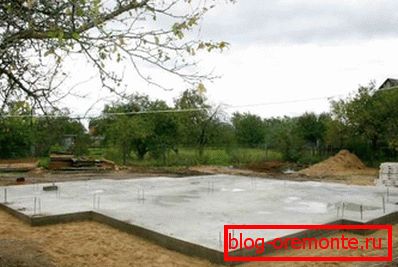
The video in this article will provide you with more information regarding the materials presented. Maintain the allotted time, and the concrete you cast will always be as strong as possible.